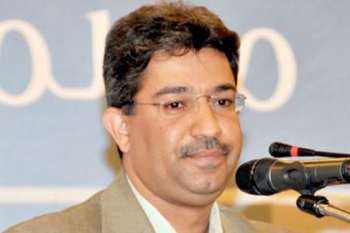On 1 June 2017, activists reported that Bahrain’s Court of Cassation upheld a three-year prison sentence for Fadhel Abbas, the former Secretary-General of the leftist opposition group Al-Wahdawi Political Society (Unitary National Democratic Assemblage). Abbas’s sentence was reduced from five years to three in October 2016 after he was arrested in March 2015 for public statements made by Al-Wahdawi that condemned the Saudi Arabia-led military coalition in Yemen.
Abbas is only the latest in a long line of opposition leaders targeted by Bahraini officials. In December 2014, authorities arrested Sheikh Ali Salman, the Secretary-General of the Al-Wefaq Political Society, for delivering speeches that were critical of the government. The courts initially sentenced him to four years in prison but, in May 2016, his sentence was extended to nine years. After an abrupt retrial in April 2017, Sheikh Salman was again sentenced to a four-year term.
During this same period, Bahraini officials went after Al-Wefaq itself. After initially suspending the society on an order from the Ministry of Justice and Islamic Affairs, Bahrain’s High Civil Court formally dissolved Al-Wefaq without defense counsel in July 2016. Authorities immediately terminated Al-Wefaq’s activities by seizing its headquarters and freezing its assets. The second High Civil Court of Appeals upheld this decision in September 2016 in an expedited hearing. Al-Wefaq is the largest political opposition group in the country.
Recent actions taken against the Wa’ad political society largely mirror those taken against Al-Wefaq last year. Wa’ad, or the National Democratic Action Society, is Bahrain’s largest secular, leftist opposition society. On 31 May 2017, a Bahraini court approved the decision to dissolve the organization after the government accused it of undermining state security and supporting terrorism. The government reportedly cited comments issued by Wa’ad that described Bahrain’s current political situation to be a “constitutional…crisis” and referred to three individuals executed by the government in January 2017 – who were tortured into providing false confessions – as “martyrs.” This was not the first time the government has targeted Wa’ad, as it initiated actions to suspend the organization in 2011 and 2014.
Also resembling the attacks on Al-Wahdawi’s and Al-Wefaq’s leadership, Bahraini officials have repeatedly judicially harassed Ebrahim Sharif, the former Secretary-General of Wa’ad. Sharif was imprisoned from 2011 to June 2015, and then re-arrested in July 2015. Authorities charged Sharif with “incitement to overthrow the regime” in relation to a speech in which he peacefully called upon the government to make political reforms. The courts sentenced him to one year in prison – which he has since completed – but he potentially faces an additional three years following new charges of “inciting hatred against the regime.”
It is particularly worrying that the courts upheld Fadhel Abbas’s three-year sentence just twenty-four hours after the official dissolution of Wa’ad. As the government appears to be demonstrating a pattern of targeting an opposition society’s leaders before attempting to dissolve the society itself, the future of Al-Wahdawi remains precarious. Further, the authorities have intensified their attacks on opposition leaders and groups in recent years. The most recent wave of suppression is likely related to the Trump Administration’s move to ease the “strain” in United States-Bahrain relations. In his May 2017 visit to Saudi Arabia, President Trump also met with the King of Bahrain where he aimed to strengthen connections between the two countries, stating “we’re going to have a very, very long-term relationship. I look forward to it very much – we have many of the same things in common.”This deepening of ties comes only after the Trump Administration also decided to pursue an unconditional sale of F-16 combat aircraft to Bahrain – a deal which was held up due to human rights concerns last year. As ADHRB’s Executive Director Husain Abdulla recently argued, “the decision to abandon reform incentives…gives Bahrain the green light to continue down a dangerous path of repression.”
Under Article 19 of the International Covenant on Civil and Political Rights (ICCPR), to which Bahrain acceded in 2006, “everyone shall have the right to freedom of expression.” Yet, by continuing to imprison Fadhel Abbas and all opposition activists who peacefully express criticism of the government, Bahraini authorities are in direct contravention of such core human rights obligation.The Government of Bahrain must immediately release those individuals imprisoned on charges related to freedom of expression and reinstate opposition parties.
Sydney Scribner is an Advocacy Intern at ADHRB.





